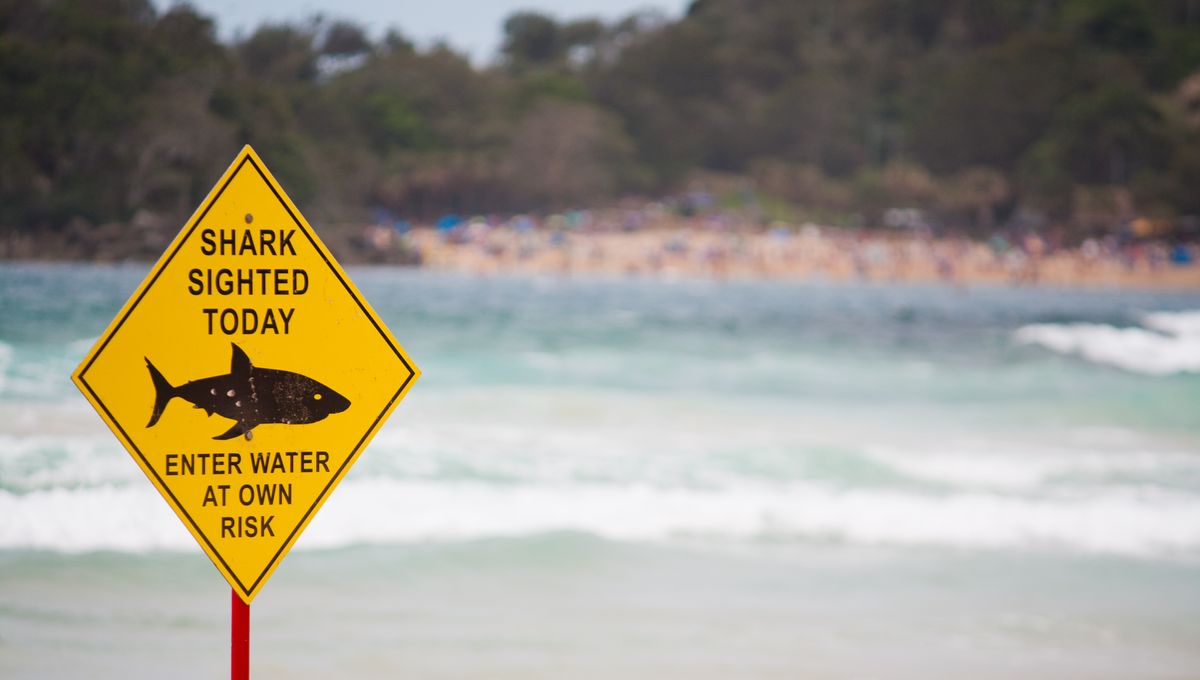
A shark has attacked and probably killed an Australian surfer in a rare but deadly encounter. The victim, eyewitnesses claim, was attacked multiple times before disappearing under the waves, which is extremely unusual behavior.
The victim, 46-year-old Simon Baccanello, was surfing on a popular beach at Walkers Rocks, part of the Lake Newland Conservation Park in South Australia, on Saturday May 13 when he was attacked. There were around 15 to 20 other people in the water at the time, including Jaiden Miller, a fellow surfer, who later told the Advertiser, “I saw his board tombstoning, which means he’s underwater and his board’s getting dragged under…trying to fight his way back up to the surface.”
During the attack, spectators lost sight of Baccanello in the water, but Miller observed that the shark was “just thrashing around out the back”, and that it had obviously let go and come back and got him for a third time.
A search and rescue operation was launched soon after the attack, involving police helicopters and boats, as well as members of the local community. Unfortunately, the search was officially called off before sunset that day. It was resumed the following morning where efforts shifted to a land-based search along the beach.
On May 15, the South Australia Police announced in a statement that “emergency services located two items of interest in relation to the search for a missing surfer, presumed dead after a shark attack.” The two objects included a piece of wetsuit material as well as a piece of white polystyrene, thought to be from Baccanello’s surfboard.
Shark attacks are extremely rare, and fatal ones are rarer still. In 2022, there were around 57 confirmed unprovoked attacks across the world, which was lower than the average for the last five years. Only nine of these attacks resulted in fatalities, five of which were confirmed as unprovoked. Although there was an unusual spike in the number of attacks in 2021, the figures for 2022 appear to match wider long-term trends.
In most cases, it is surfers who encounter sharks who are the ones most likely to be attacked. This is because sharks mistake surfers for seals, their preferred prey. It is an unfortunate coincidence that, viewed from below, a human on a surfboard has a similar shape to a seal.
In most cases, a stalking shark will lose interest once it realizes it is investigating a human rather than a seal, but sometimes they deliver an exploratory bite to check. This tells them that they are not dealing with their regular food, so they abandon it and swim away. But such bites can leave humans seriously wounded, resulting in blood loss which is the main cause of death when it comes to shark attacks.
Gavin Nalor, the Director of the Florida Program for Shark Research at the Florida Museum, explained to Live Science that the repeated attack on Baccanello was “atypical” behavior, “but not unheard of”.
“If the bite is motivated by predation or territoriality they can deliver an initial bite and then return to bite again”.
Great white sharks, for instance, are ambush predators who will deliver an initial bite from below and then back off while their prey bleeds out and weakens. Then, they return to finish it off. Equally, sharks involved in a feeding frenzy with other sharks can become more aggressive if they are competing for food.
Bull sharks are often thought to be the most dangerous species of shark because they are aggressive and territorial, and tend to live near highly populated areas. They are even known to venture upstream into rivers and tributaries.
Despite the unfortunate attack on Baccanello and the few others across the world, sharks have significantly more to fear from humans than we do from them, due to excessive commercial fishing and trophy hunting. In fact, you are statistically more likely to be killed by a lightning strike, train crash, or fireworks display than you are by a shark.
The reputation of these fascinating animals suffered greatly with the release of Jaws in 1975, but last year Steven Spielberg told BBC’s Desert Island Discs that he deeply regretted how the film has inspired so much fear and hate.
“I truly, and to this day, regret the decimation of the shark population because of the book and the film.”
Source Link: Shark Attack On Australian Surfer Was "Atypical" But Deadly Behavior